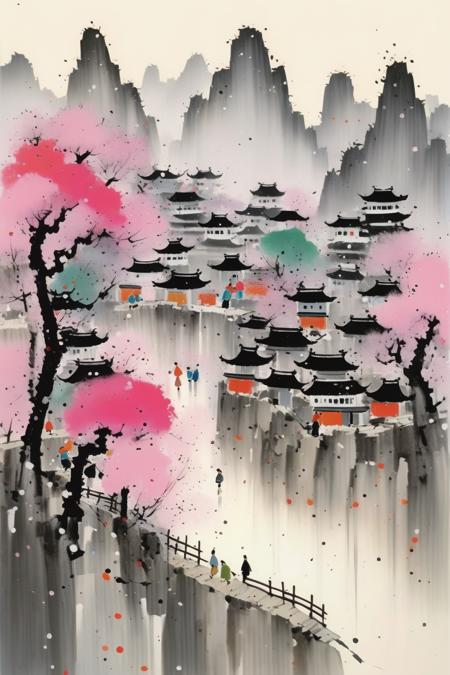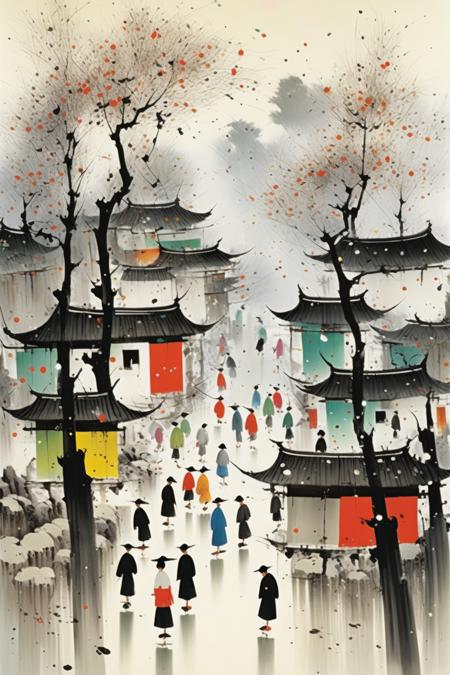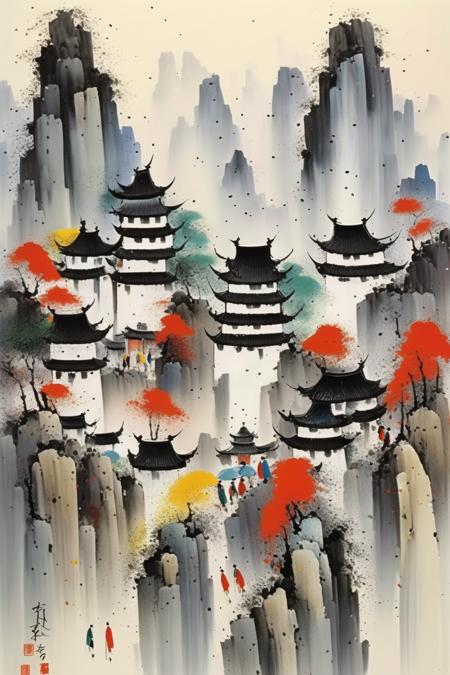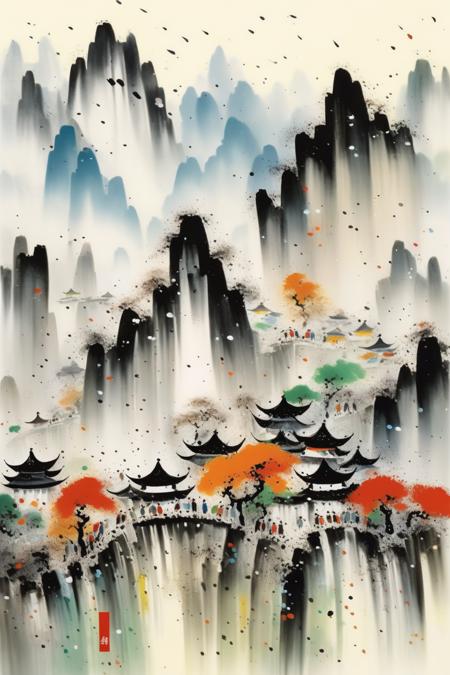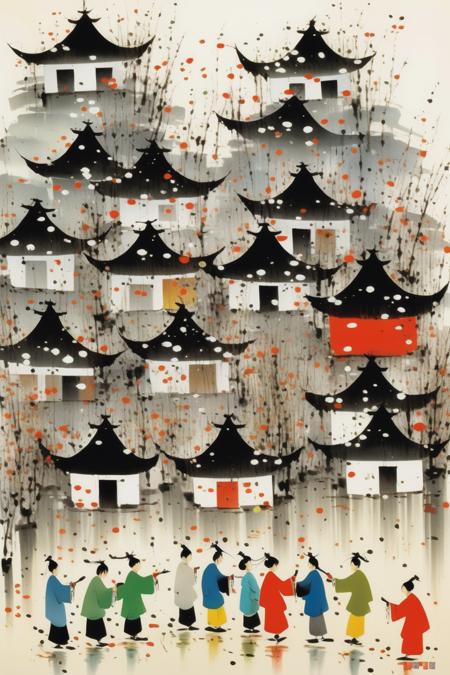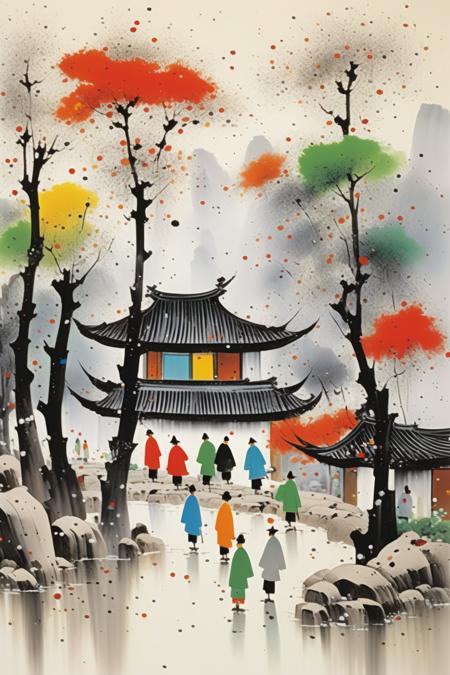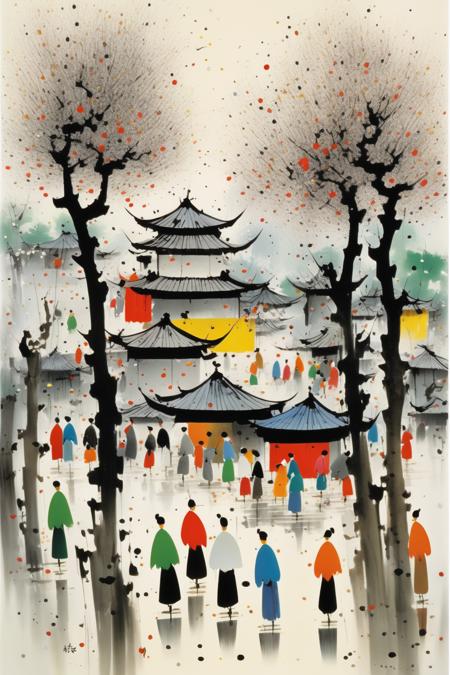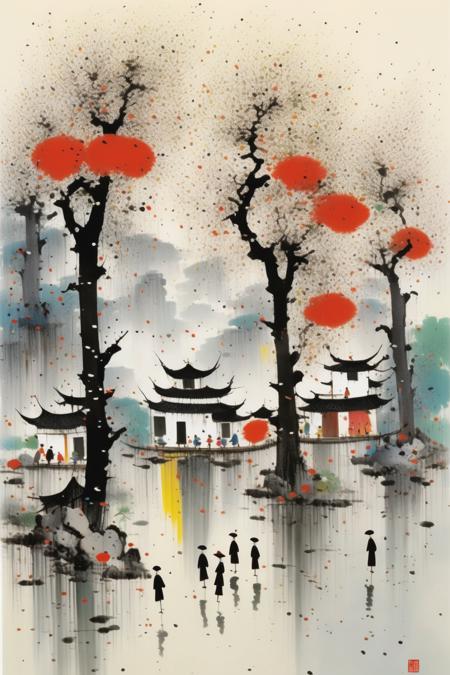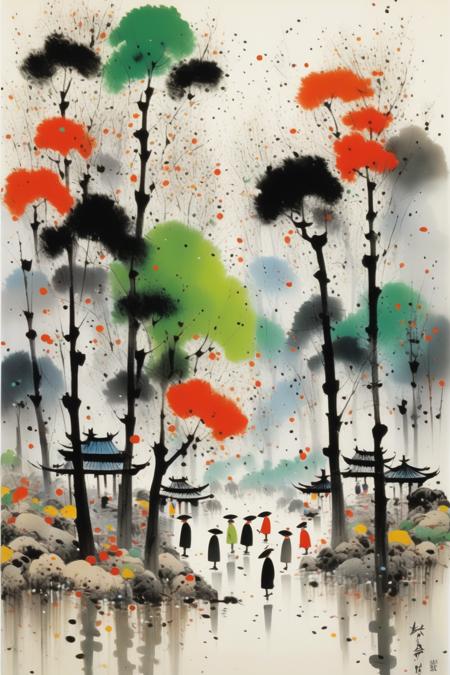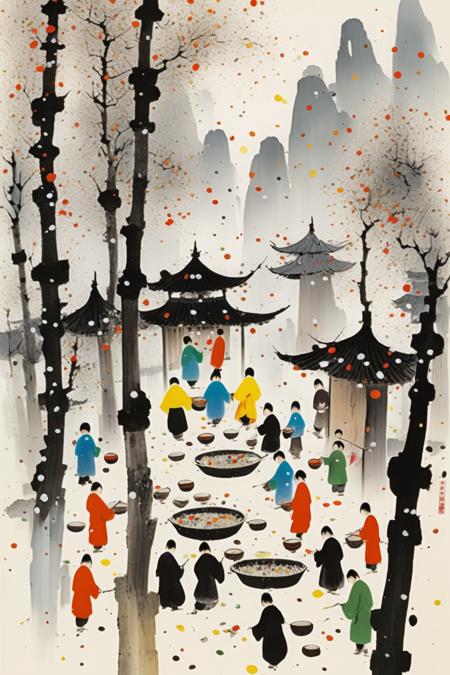Wu Guanzhong Style (CivitAI)
Wu Guanzhong Style - This is a gouache painting by Wu Guanzhong and william tuner. The main body of the picture is a rough brush curve like pine branches. Behind the curve with light gray lines gently outline Jiangnan water town. Both a solid and a virtual, a light and a strong. In between mountains with colorful water pink dots
Wu Guanzhong, born in 1919 and passed away in 2010, was a renowned Chinese painter and art educator. He is considered one of the most influential modern Chinese artists and is known for his innovative approach to blending Chinese and Western painting techniques.
Wu Guanzhong's artistic style can be described as a fusion of traditional Chinese ink painting with modern Western art elements. He explored the use of vibrant colors and bold brushwork while incorporating traditional Chinese ink wash techniques.
One of his notable contributions was his emphasis on capturing the essence of Chinese landscapes and architecture. Wu Guanzhong's landscapes often conveyed a sense of both grandeur and tranquility, portraying the harmonious relationship between humanity and nature.
Beyond landscapes, he also depicted a wide range of subjects, including figures, still life, and cityscapes. Wu Guanzhong's artworks reflected his deep appreciation for the beauty of everyday life and his desire to convey the emotional and spiritual aspects of his subjects.
Wu Guanzhong's artistic achievements were widely recognized both in China and internationally. He received numerous awards and honors throughout his career, and his works were exhibited worldwide.
As an art educator, Wu Guanzhong made significant contributions to art education in China. He advocated for artistic freedom, encouraging artists to explore new ideas and experiment with different styles. His teachings and writings inspired generations of artists and helped shape the development of modern Chinese art.
Wu Guanzhong's legacy as an artist and educator continues to influence the world of art. His innovative blending of Eastern and Western artistic traditions, his ability to capture the essence of Chinese culture, and his dedication to artistic exploration have left an indelible mark on the history of Chinese art.
Image examples for the model:
Wu Guanzhong Style - A beautiful painting by Wu Guanzhong, Traditional Chinese colorful Ink of The artistic expression in the murals has a strong local flavor and cultural atmosphere, like vivid pictures showing past life scenes and emotional worlds
Wu Guanzhong Style - A beautiful painting by Wu Guanzhong, Traditional Chinese colorful Ink of The ancient city walls stand tall among the mountains, like giants guarding history and living up to their reputation over time
Wu Guanzhong Style - A beautiful painting by Wu Guanzhong, Traditional Chinese colorful Ink Painting style of Majestic mountains pierce the sky, their peaks reaching for the heavens in a timeless symphony of grandeur
Wu Guanzhong Style - A beautiful painting by Wu Guanzhong, Traditional Chinese colorful Ink of People decorate their houses with fragrant sachets made from mugwort leaves to ward off evil spirits and bring good luck
Wu Guanzhong Style - A beautiful painting by Wu Guanzhong, Traditional Chinese colorful Ink Painting style of The walls of an art gallery exhibit tell stories, each stroke a testament to the human experience
Wu Guanzhong Style - A beautiful painting by Wu Guanzhong, Traditional Chinese colorful Ink of The festival is a time for people to set aside differences and come together in a spirit of harmony and goodwil
Wu Guanzhong Style - A beautiful painting by Wu Guanzhong, Traditional Chinese colorful Ink of The mind has no abode, no place of reliance, free from all scattered thoughts, resting in the realm of reality
Wu Guanzhong Style - A beautiful painting by Wu Guanzhong, Traditional Chinese colorful Ink of Planting trees and greening the environment, calling on everyone to pay attention to environmental issues
Wu Guanzhong Style - A beautiful painting by Wu Guanzhong, Traditional Chinese colorful Ink of Eating Laba porridge, this festival originated from Buddhism and was set up to commemorate Sakyamuni
- Downloads last month
- 6
Model tree for KappaNeuro/wu-guanzhong-style
Base model
stabilityai/stable-diffusion-xl-base-1.0